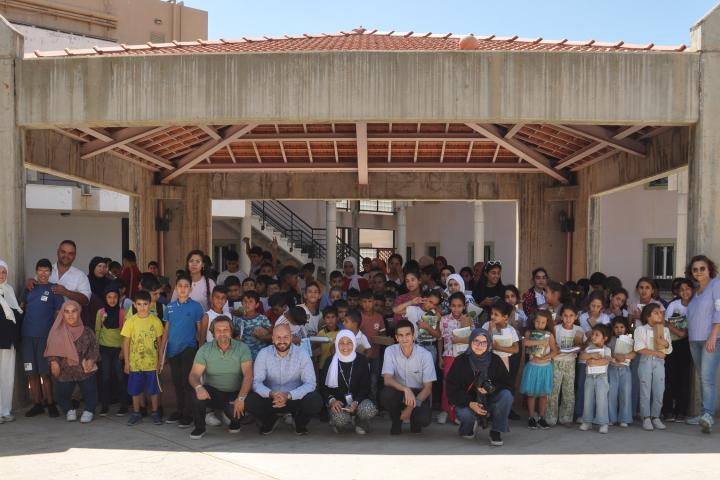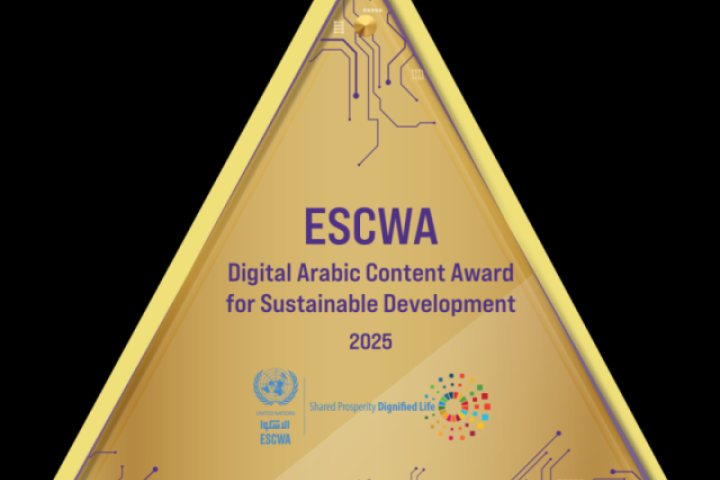ESCWA continued on Tuesday 13 December 2016 the works of its 29th Session at the Sheraton Grand hotel in Doha, Qatar, where discussions revolved around Justice for the Palestinian people after fifty years of Israeli occupation. Under this framework, Director of the Emerging and Conflict-Related Issues Division (ECRI) Tarik Alami gave a presentation on the possibility to apply the legal definition of racial discrimination on the policies and practices adopted by Israel towards the Palestinian people; calculate the cumulative cost of the Israeli occupation and its practices against the Palestinian people; and support the Palestinian people and institutions in their efforts to secure their inalienable rights and to achieve justice and peace through a communication strategy prepared by ESCWA.
In his presentation, Alami pointed out that the general concept of apartheid in the region and the world stems from the experience of South Africa and is limited to a racial segregation between racial, religious, and ethnic identities, and to a fragmentation of the Palestinian people geographically, legally and politically, and this is a common error as it is an incomplete and inaccurate definition. He added that among the preliminary findings of ESCWA studies, the Israeli policy that is built on the divide-and-conquer principle is at the core of the Israeli racial discrimination system, whereas the Palestinian people has been divided into four main categories: Palestinian citizens of Israel; Palestinian residents of East Jerusalem; Palestinians living in the remainder of the Palestinian territory occupied by Israel since 1967, except East Jerusalem; and registered Palestinian refugees. This aims at fragmenting the Palestinian unified identity so that each category remain preoccupied with its own legal, living, and political issues, and work under separate frameworks, directions, and organizational and political approaches. At the same time, each fragment would be oppressed in different ways.
ESCWA will issue a study during the first quarter of the forthcoming year, including recommendations to the states, the United Nations, and the civil society, and will be a significant step towards holding Israel to account and achieve justice to the Palestinian people.
Cost of the Israeli occupation and practices
With regards to the cumulative cost of the Israeli occupation and practices, Alami said that ESCWA has set several fundamentals, namely that it is impossible to put a price on human life. Second, any study must serve the Palestinian people, their aspirations and rights, and that calculating the cost does not replace in any way the struggle of the Palestinian people to achieve justice. ESCWA also believes that the length, nature, and practices of the occupation impose a new approach that requires a methodology based on a deep understanding of the dimensions of the Israeli occupation and its current and future repercussions for Palestinians and direct and indirect cost, through a research study that avails of different scientific areas of expertise.
Alami noted that this approach and methodology are the first-of-a-kind experience to calculate the total cost of the long-term occupation. This operation has led to a deeper understanding of the repercussions of Israeli practices and policies on the short and long terms.
In addition to documenting evidence of illegal Israeli practices and their repercussions on the Palestinian people and at the international level, this approach contributes to a better acknowledgement of the Palestinian cause and to more efficiently plan the development interventions as well as to determine the best ways to hold Israel to account wherever there is the political will to do so.
As for the first benefit to the Palestinian people and institutions, such effort would help them develop policies that are based on evidence and alleviate the impact of Israeli measures. In addition, such effort would generate evidence to hold Israel to account and tools of support and raising awareness over the causes of the Palestinian people.
At the end of his presentation, Alami spoke about the suggested media and communication strategy to support the Palestinian people, and noted that it should include four key messages: first, that the Palestinian people are committed to attaining a decent life and justice, and can inspire other peoples and contribute to human development and a better world; second, that peace cannot be achieved without justice, and justice cannot be secured before Palestinians enjoy their rights in full, including self-determination, development and the right to return; third, that to leave the Palestinian question unresolved and Israeli violations of international law undeterred threatens the international system, which is based on justice, non-discrimination and the rule of law; and fourth, that any solution to the Palestinian question must be in line with the principles of non-discrimination, justice and the right to self-determination, as enshrined in international law.
Session opening
The ESCWA 29th Session had been opened yesterday morning at the level of senior delegates, where Qatar assumed chairmanship from the Kingdom of Bahrain. The Republic of Tunis and Bahrain were selected as vice chairs and Sudan as Rapporteur.
Ministers and high-level officials representing the member countries of ESCWA; representatives of United Nations agencies and programs; delegates of UN member countries non-members in ESCWA; the Diplomatic Corps accredited to Qatar and a score of officials; delegates of regional and international non-governmental organizations; delegates of donor institutions and foundations; as well as a crowd of regional and international experts will participate in the Session, which opens this afternoon at the ministerial level.
*****
For more information:
Nabil Abu-Dargham +961-70-99 31 44
Ms. Mirane Abi-Zaki +961-76-04 64 02
dargham@un.org
abi-zaki@un.org
escwa-ciu@un.org
For more ESCWA news, please visit:
Website: www.unescwa.org Facebook: www.facebook.com/unescwa Twitter: @ESCWACIU
Press release
14 Dec 2016
Doha-Beirut
Justice for Palestine



